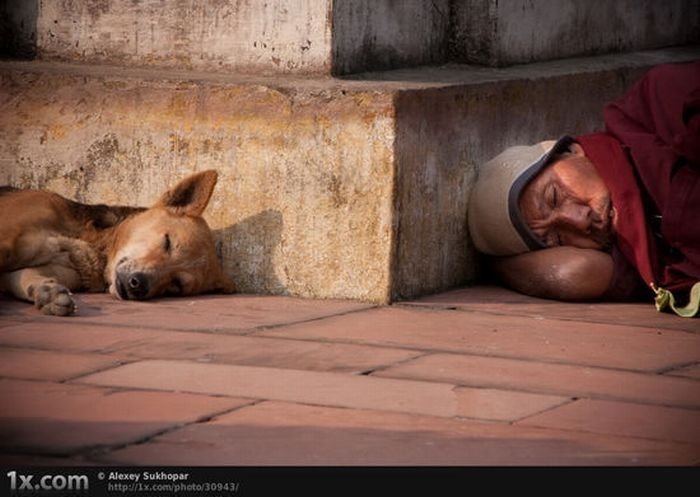|
|
Faces Of Poverty
|
Certain religious orders also take a vow of extreme poverty. For example, the Franciscan orders have traditionally foregone all individual and corporate forms of ownership. While individual ownership of goods and wealth is forbidden for Benedictines, following the Rule of St. Benedict, the monastery itself may possess both goods and money, and throughout history some monasteries have become very rich.
In this context of religious vows, poverty may be understood as a means of self-denial to place oneself at the service of others; Pope Honorius III wrote in 1217 that the Dominicans "lived a life of voluntary poverty, exposing themselves to innumerable dangers and sufferings, for the salvation of others". Following Jesus' warning that riches can be like thorns that choke up the good seed of the word (Matthew 13:22), voluntary poverty is often understood by Christians as of benefit to the individual – a form of self-discipline by which one distances oneself from distractions from God.
|
|









